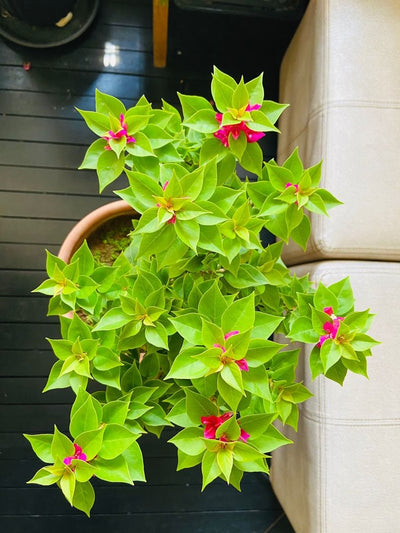Poisonous Houseplants for Dogs
There are poisonous houseplants for dogs and cats. Some are mildly poisonous, and some are fatal. It is better to know about them if you own a pet that’s why we’ve listed 34 plants toxic to dogs.

We believe a dog is a curious animal, especially when it’s young (puppy). Extremely argus-eyed in its quest and if your dog has a tendency to look for something to nibble on then this list of poisonous plants for dogs will help you.
Note: Many of our readers suggested through emails and comments that we should not label plants that contain calcium oxalate as toxic, and we are in agreement. You can exclude the plants that contain only calcium oxalate crystals or the plants that are termed as mildly or moderately poisonous in this list!
Poisonous Houseplants for Dogs
1. Sago Palm

This exquisite plant sago palm is one of the favorites of landscapers. Usually, dogs don’t find it attractive, but if your dog is the exception and has a tendency to bite or chew just anything.
Toxins: Cycasin
Severity: Very high
Malicious Parts of the Plant: The whole plant
Symptoms: Vomiting, jaundice, increased thirst, hemorrhagic gastroenteritis, bruising, clotting disorder, liver damage, liver failure, and death.
2. Alocasia
it consists of 79 species, originated from the area of the Eastern Himalayas, the tropical and subtropical regions of Asia, to tropical regions of the western Pacific and eastern Australia. Some species are endemic. They are also grown as a houseplant.
Toxins: Insoluble calcium oxalate
Severity: Moderate
Malicious Parts of the Plant: Leaves, Stems, and Roots
Symptoms: Mucous membrane irritation, intense burning, and irritation of the mouth, lips, and tongue, excessive drooling, vomiting, difficulty in swallowing.
3. Aloe

A kind of leaf succulents, many varieties have various medicinal uses. But aloes are the plants toxic to dogs but only when they ingest it. There are around 500 species, comes in various forms– woody shrubs and sometimes vines. The geographical range of the plants of this type includes the Arabian Peninsula, Africa, South Asia, and Madagascar.
Toxins: Saponins
Severity: Mild to Moderate
Malicious Parts of the Plant: Pulp and Juice
Symptoms: Vomiting, depression, diarrhea, lack of appetite, change in the color of urine.
4. Arrowhead Plant

Most common species is Syngonium podophyllum. It comes from the tropical areas of Central America and the Northern areas of South America. It is cultivated as an ornamental plant. The plant contains calcium oxalate in its sap, which is harmful if contacted or ingested.
Toxins: Insoluble calcium oxalates
Severity: Moderate
Harmful parts of the plant: All parts of the plant
Symptoms: Vomiting, depression, diarrhea, lack of appetite, chills, change in the color of urine.
5. Calla Lily
Calla lilies are beautiful, but at the same time, they are one of the poisonous plants for dogs and cats. When the plant is chewed, clinical signs are visible immediately.
Toxins: Insoluble calcium oxalates and unidentified, toxic alkaloids
Severity: Mild to Moderate
Harmful Parts of the Plant: All parts of the plant
Symptoms: Oral pain, diarrhea, drooling, lack of appetite, pawing at the mouth.
6. Strelitzia (Bird of Paradise)
Did you know?
Hydrogen cyanide was used by Iraq in the war against Iran. During the Second World War, a form of hydrogen cyanide (Zyklon B) was used in the Nazi gas chambers.
Toxins: Hydrogen Cyanide (Prussic Acid)
Severity: High
Malicious parts of plants: All Parts
Symptoms: Mild nausea, vomiting, drowsiness, difficulty in breathing, less appetite, death.
7. ZZ Plant
ZZ plant belongs to the Araceae family; it contains calcium oxalate crystals. However, plants that contain calcium oxalates don’t possess many serious threats, and you can exclude them.
Toxins: Insoluble calcium oxalates
Severity: Mild
Harmful parts of the plant: All parts of the plant
Symptoms: Mucous membrane irritation, intense burning, and irritation of the mouth and lips, tongue, excessive drooling.




Leave a comment